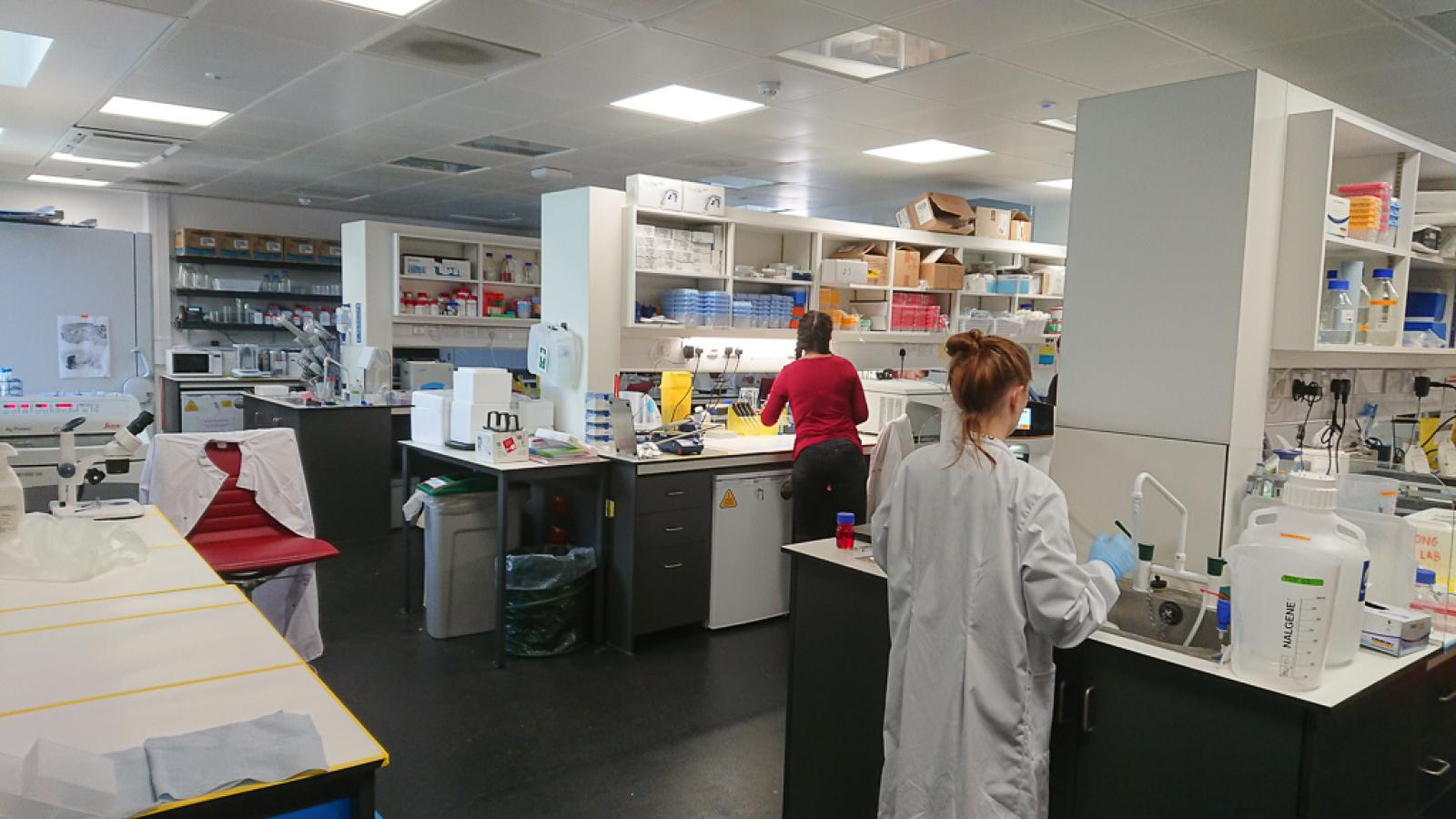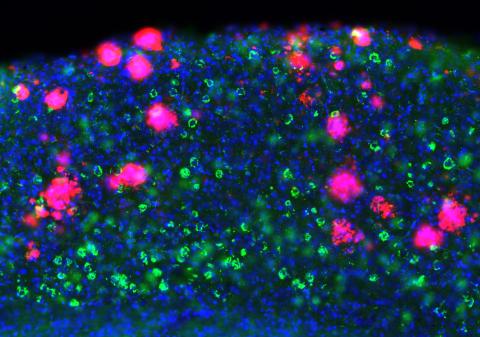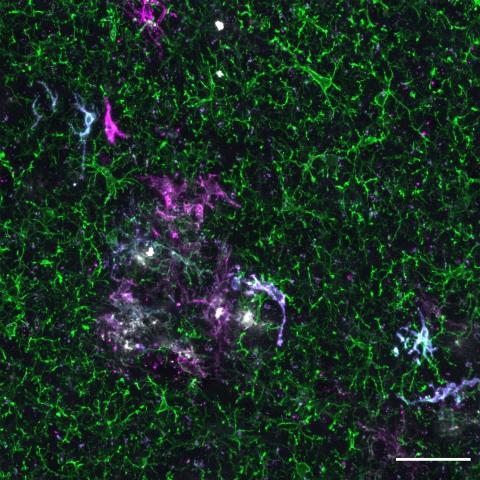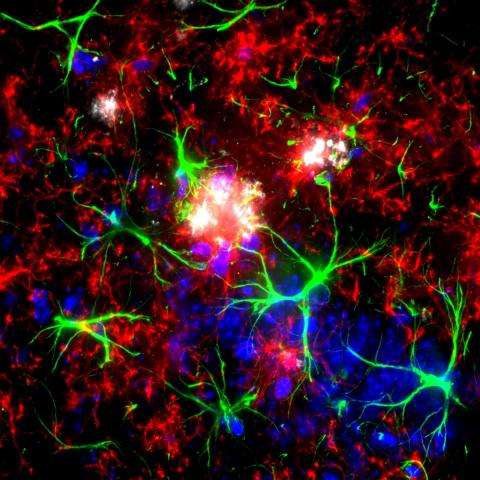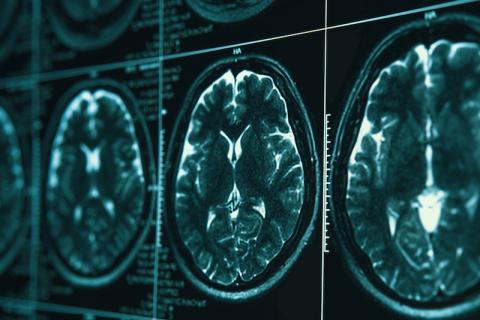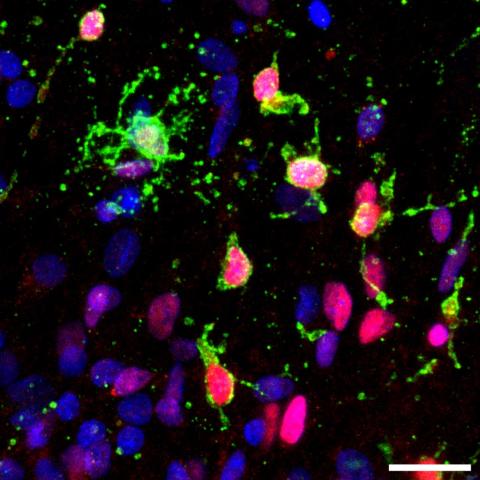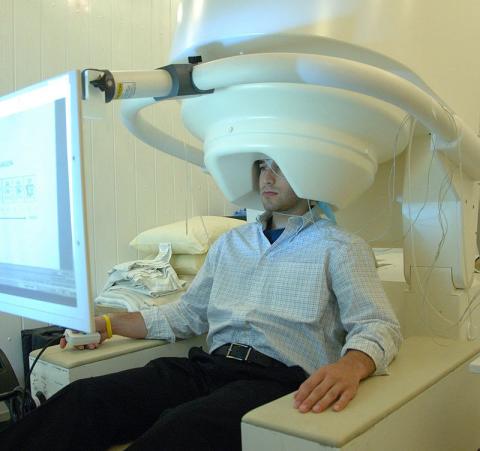The ultimate aim of the UK DRI at UCL is to reach a point where we can prevent dementia from manifesting or treat it early enough to halt progression. The Centre is focused on understanding the molecular basis of cellular processes that particularly impact the earliest stages of neurodegeneration, to identify novel pathogenic targets, devise appropriate therapeutics, and importantly, administer them at the optimal time – encapsulated by the Centre’s aim of ‘right drug, right patient, right time’.
To achieve this, the Centre’s scientific strategy has two main tracks; the first is to understand the spectrum of pathogenic mechanisms of a given disease and develop appropriate therapeutics; the second is to identify the right patients for those therapeutics by decoding human heterogeneity at multiple levels.
The individual programmes, led by a diverse group of researchers with a range of skill sets and expertise from discovery scientists to clinicians, are organised into four overlapping themes:
- Genetics: aiming to identify new genetic causes of disease and modifiers of progression or severity, understanding how genetic variability translates into disease risk, and developing clinical applications of genetic analysis to help with patient stratification and enable a more personalised approach to treatment.
- Mechanisms of disease: diseases including Alzheimer’s, frontotemporal dementia, amyotrophic lateral sclerosis, Down syndrome and Parkinson’s are studied, with mechanistic studies performed from single molecule to intact circuits and behavioural and cognitive analyses.
- Target and therapeutic development: identifying innovative targets and developing assays to accelerate the process of drug development.
- Clinical applications: developing new biomarkers, diagnostic and disease monitoring approaches, and improving clinical care.
The UK DRI at UCL is home to the Biomarker Factory – the UK DRI’s gold-standard, world leading platform for biomarker development for neurodegenerative disease.
The UK DRI Single Cell and Spatial Omics Facility, based in the Cruciform building at UCL, provides experimental services in single cell and spatial 'omics, assistance in experimental design, access to equipment and bioinformatic support to UK DRI and visiting researchers.
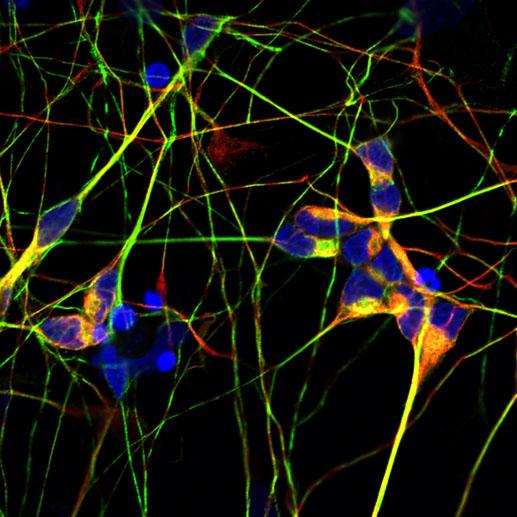
iPSC cells. Credit: Rubika Balendra, Isaacs Lab
